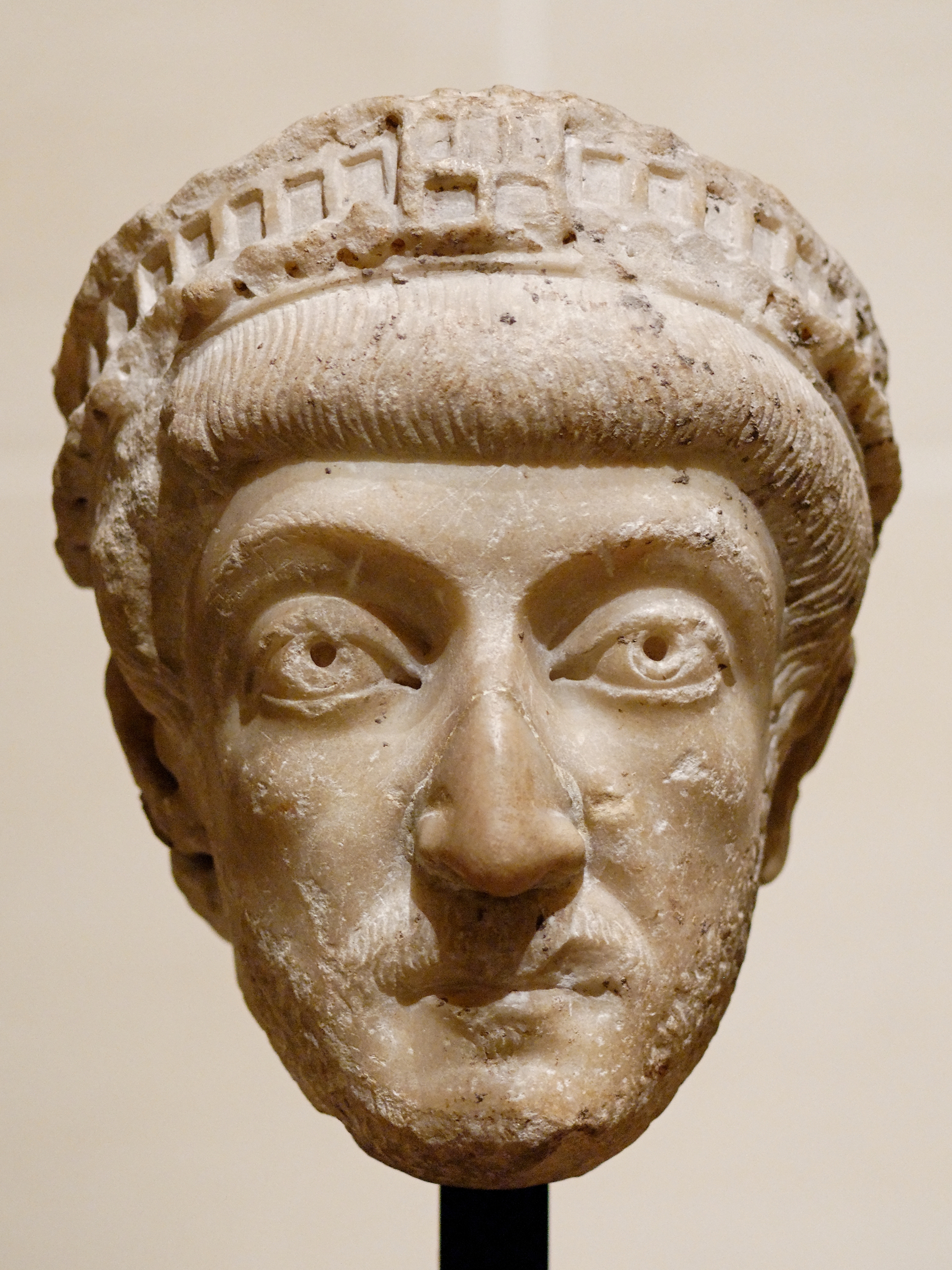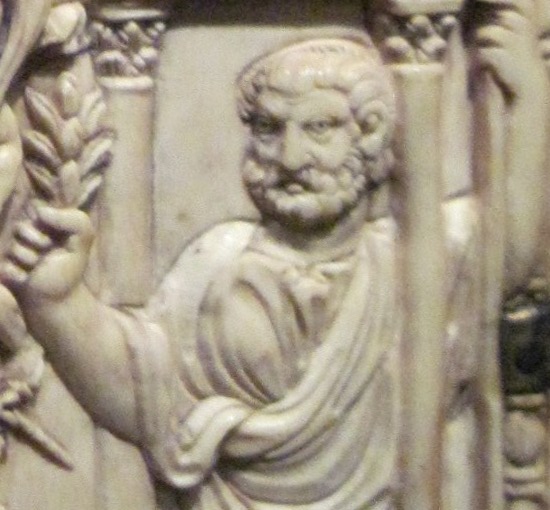|
Apollodorus (jurist)
Apollodorus was a Graeco-Roman jurist of the 5th century AD, who was one of the commission appointed by Theodosius II to compile the ''Codex Theodosianus''. In the year 429 he appears as ''comes'' and ''magister memoriae'', and he appears as ''comes sacri consistorii'' in the years 435 and 438. There seems to be no reason, beyond sameness of name and nearness of date, to identify him with the Apollodorus who was '' comes rei privatae'' under the emperors Arcadius and Honorius in the year 396, and was proconsul of Africa in the years 399 and 400. To Apollodorus, proconsul of Africa, are addressed some of the letters of Quintus Aurelius Symmachus, who was connected with him by affinity.''Codex Theodosianus The ''Codex Theodosianus'' (Eng. Theodosian Code) was a compilation of the laws of the Roman Empire under the Christian emperors since 312. A commission was established by Emperor Theodosius II and his co-emperor Valentinian III on 26 March 429 a ...'' 8.4, 9.14, 48 Notes ... [...More Info...] [...Related Items...] OR: [Wikipedia] [Google] [Baidu] |
Graeco-Roman
The Greco-Roman civilization (; also Greco-Roman culture; spelled Graeco-Roman in the Commonwealth), as understood by modern scholars and writers, includes the geographical regions and countries that culturally—and so historically—were directly and intimately influenced by the language, culture, government and religion of the Greeks and Romans. A better-known term is classical civilization. In exact terms the area refers to the "Mediterranean world", the extensive tracts of land centered on the Mediterranean and Black Sea Basins, the "swimming pool and spa" of the Greeks and the Romans, in which those peoples' cultural perceptions, ideas, and sensitivities became dominant in classical antiquity. That process was aided by the universal adoption of Greek as the language of intellectual culture and commerce in the Eastern Mediterranean and of Latin as the language of public administration and of forensic advocacy, especially in the Western Mediterranean. Greek and Latin w ... [...More Info...] [...Related Items...] OR: [Wikipedia] [Google] [Baidu] |
Theodosius II
Theodosius II ( grc-gre, Θεοδόσιος, Theodosios; 10 April 401 – 28 July 450) was Roman emperor for most of his life, proclaimed ''augustus'' as an infant in 402 and ruling as the eastern Empire's sole emperor after the death of his father Arcadius in 408. His reign was marked by the promulgation of the Theodosian law code and the construction of the Theodosian Walls of Constantinople. He also presided over the outbreak of two great Christological controversies, Nestorianism and Eutychianism. Early life Theodosius was born on 10 April 401 as the only son of Emperor Arcadius and his wife Aelia Eudoxia.'' PLRE'' 2, p. 1100 On 10 January 402, at the age of 9 months, he was proclaimed co-a''ugustus'' by his father, thus becoming the youngest to bear the imperial title up to that point. On 1 May 408, his father died and the seven-year-old boy became emperor of the Eastern half of the Roman Empire. Reign Early reign The government was at first administered b ... [...More Info...] [...Related Items...] OR: [Wikipedia] [Google] [Baidu] |
Codex Theodosianus
The ''Codex Theodosianus'' (Eng. Theodosian Code) was a compilation of the laws of the Roman Empire under the Christian emperors since 312. A commission was established by Emperor Theodosius II and his co-emperor Valentinian III on 26 March 429 and the compilation was published by a constitution of 15 February 438. It went into force in the eastern and western parts of the empire on 1 January 439. The original text of the codex is also found in the '' Breviary of Alaric'' (also called ''Lex Romana Visigothorum''), promulgated on 2 February 506. Development On 26 March 429, Emperor Theodosius II announced to the Senate of Constantinople his intentions to form a committee to codify all of the laws (''leges'', singular ''lex'') from the reign of Constantine up to Theodosius II and Valentinian III.Peter Stein, pp. 37-38 The laws in the code span from 312 to 438, so by 438 the "volume of imperial law had become unmanageable". Twenty-two scholars, working in two teams, worked for n ... [...More Info...] [...Related Items...] OR: [Wikipedia] [Google] [Baidu] |
Comes Sacri Consistorii
''Comes'' ( ), plural ''comites'' ( ), was a Roman title or office, and the origin Latin form of the medieval and modern title "count". Before becoming a word for various types of title or office, the word originally meant "companion", either individually or as a member of a collective denominated a "''Comitatus (classical meaning), comitatus''", especially the suite of a magnate, being in some instances sufficiently large and/or formal to justify specific denomination, e.g. a "''cohors amicorum''". "''Comes''" derives from "''com-''" ("with") and "''ire''" ("go"). Ancient Roman religion ''Comes'' was a common epithet or title that was added to the name of a hero or god in order to denote relation with another god. The coinage of Constantine I (emperor), Roman Emperor Constantine I declared him "''comes''" to Sol Invictus ("Unconquered Sun") ''qua'' god. Imperial Roman curial titles and offices styled ''Comites'' Historically more significant, "''comes''" became a secular ti ... [...More Info...] [...Related Items...] OR: [Wikipedia] [Google] [Baidu] |
Arcadius
Arcadius ( grc-gre, Ἀρκάδιος ; 377 – 1 May 408) was Roman emperor from 383 to 408. He was the eldest son of the ''Augustus'' Theodosius I () and his first wife Aelia Flaccilla, and the brother of Honorius (). Arcadius ruled the eastern half of the empire from 395, when their father died, while Honorius ruled the west. A weak ruler, his reign was dominated by a series of powerful ministers and by his wife, Aelia Eudoxia.Nicholson, p. 119 Early life Arcadius was born in 377 in Hispania, the eldest son of Theodosius I and Aelia Flaccilla, and brother of Honorius. On 16 January 383, his father declared the five-year-old Arcadius an Augustus and co-ruler for the eastern half of the Empire. Ten years later a corresponding declaration made Honorius Augustus of the western half. Arcadius passed his early years under the tutelage of the rhetorician Themistius and Arsenius Zonaras, a monk. Emperor Early reign Both of Theodosius' sons were young and inexperienced ... [...More Info...] [...Related Items...] OR: [Wikipedia] [Google] [Baidu] |
Honorius (emperor)
Honorius (9 September 384 – 15 August 423) was Roman emperor from 393 to 423. He was the younger son of emperor Theodosius I and his first wife Aelia Flaccilla. After the death of Theodosius, Honorius ruled the western half of the empire while his brother Arcadius ruled the eastern half. In 410, during Honorius's reign over the Western Roman Empire, Rome was sacked for the first time in almost 800 years. Even by the standards of the Western Empire, Honorius's reign was precarious and chaotic. His early reign was supported by his principal general, Stilicho, who was successively Honorius's guardian (during his childhood) and his father-in-law (after the emperor became an adult). Family Honorius was born to Emperor Theodosius I and Empress Aelia Flaccilla on 9 September 384 in Constantinople. He was brother to Arcadius and Pulcheria. In 386, his mother died, and in 387, Theodosius married Galla who had taken a temporary refuge in Thessaloniki with her family, including he ... [...More Info...] [...Related Items...] OR: [Wikipedia] [Google] [Baidu] |
Proconsul
A proconsul was an official of ancient Rome who acted on behalf of a consul. A proconsul was typically a former consul. The term is also used in recent history for officials with delegated authority. In the Roman Republic, military command, or ''imperium'', could be exercised constitutionally only by a consul. There were two consuls at a time, each elected to a one-year term. They could not normally serve two terms in a row. If a military campaign was in progress at the end of a consul's term, the consul in command might have his command prorogued, allowing him to continue in command. This custom allowed for continuity of command despite the high turnover of consuls. In the Roman Empire, proconsul was a title held by a civil governor and did not imply military command. In modern times, various officials with notable delegated authority have been referred to as proconsuls. Studies of leadership typically divide leaders into policymakers and subordinate administrators. The proconsu ... [...More Info...] [...Related Items...] OR: [Wikipedia] [Google] [Baidu] |
Africa (Roman Province)
Africa Proconsularis was a Roman province on the northern African coast that was established in 146 BC following the defeat of Carthage in the Third Punic War. It roughly comprised the territory of present-day Tunisia, the northeast of Algeria, and the coast of western Libya along the Gulf of Sirte. The territory was originally inhabited by Berber people, known in Latin as ''Mauri'' indigenous to all of North Africa west of Egypt; in the 9th century BC, Phoenicians built settlements along the Mediterranean Sea to facilitate shipping, of which Carthage rose to dominance in the 8th century BC until its conquest by the Roman Republic. It was one of the wealthiest provinces in the western part of the Roman Empire, second only to Italy. Apart from the city of Carthage, other large settlements in the province were Hadrumetum (modern Sousse, Tunisia), capital of Byzacena, and Hippo Regius (modern Annaba, Algeria). History Rome's first province in northern Africa was establishe ... [...More Info...] [...Related Items...] OR: [Wikipedia] [Google] [Baidu] |
Quintus Aurelius Symmachus
Quintus Aurelius Symmachus signo Eusebius (, ; c. 345 – 402) was a Roman statesman, orator, and man of letters. He held the offices of governor of proconsular Africa in 373, urban prefect of Rome in 384 and 385, and consul in 391. Symmachus sought to preserve the traditional religions of Rome at a time when the aristocracy was converting to Christianity, and led an unsuccessful delegation of protest against Emperor Gratian's order to remove the Altar of Victory from the curia, the principal meeting place of the Roman Senate in the Forum Romanum. Two years later he made a famous appeal to Gratian's successor, Valentinian II, in a dispatch that was rebutted by Ambrose, the bishop of Milan. Symmachus's career was temporarily derailed when he supported the short-lived usurper Magnus Maximus, but he was rehabilitated and three years later appointed consul. After the death of Theodosius I, he became an ally of Stilicho, the guardian of emperor Honorius. In collaboration with ... [...More Info...] [...Related Items...] OR: [Wikipedia] [Google] [Baidu] |
5th-century Romans
The 5th century is the time period from 401 ( CDI) through 500 ( D) ''Anno Domini'' (AD) or Common Era (CE) in the Julian calendar. The 5th century is noted for being a period of migration and political instability throughout Eurasia. It saw the collapse of the Western Roman Empire, which came to an end in 476 AD. This empire had been ruled by a succession of weak emperors, with the real political might being increasingly concentrated among military leaders. Internal instability allowed a Visigoth army to reach and ransack Rome in 410. Some recovery took place during the following decades, but the Western Empire received another serious blow when a second foreign group, the Vandals, occupied Carthage, capital of an extremely important province in Africa. Attempts to retake the province were interrupted by the invasion of the Huns under Attila. After Attila's defeat, both Eastern and Western empires joined forces for a final assault on Vandal North Africa, but this campaign was a s ... [...More Info...] [...Related Items...] OR: [Wikipedia] [Google] [Baidu] |
_(30776483926).jpg)







